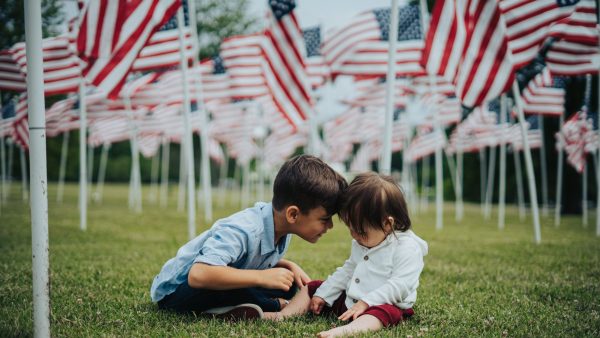The difficult task of explaining pregnancy loss and miscarriage to your kids.

October is Pregnancy and Infant Loss Awareness Month. For many women, pregnancy or
infant loss are just a statistic. But for those of us who are the statistic it’s so much more. According to the March of Dimes, about 10 to 15 in 100 pregnancies end in miscarriage.
Sadness, anger, guilt, and fear are some of the feelings associated with these losses. Throw-in having to tell your son(s) or daughter(s) that their baby sibling is not coming home and you find yourself completely overwhelmed. Talking to kids about miscarriage is hard.
I suffered a loss recently and it was quite honestly one of the most devastating experiences of my life. We had not yet told our children that I was pregnant for the fear of exactly this happening. We planned on telling them after my 12-week appointment but we never got that far.
Whether you are 8 weeks or 20 weeks explaining a loss to a child can be so difficult. As a Labor and Delivery Nurse, I do however see how important it is to know how to handle all of your little one’s questions during such a sad time. It’s heartbreaking for mom and dad to have to explain to them that their siblings won’t be coming home and it can be so overwhelming.
Resources for Talking To Kids About Miscarriage & Loss
At work, we offer books and pamphlets on how to tell your child about a miscarriage or loss – all of which encourage being honest and as straight forward as possible. I also recommend a few books that have great illustrations and content for children.
- My Sibling Still – Megan Lacourrage
- Our Heaven Baby – Leah Vis
- The Invisible String – Patrice Karst ( My favorite)
- Molly’s Rosebush – Janice, Cohn
- PBS Kids, NPR, and Sesame Street have great articles on death and grieving.
According to the CDC, about 1 pregnancy in 100 at 20 weeks of pregnancy and later is affected by stillbirth. That’s about 24,000 babies each year that are stillborn in the United States.
The most important step in this process is to know its okay to not be okay.
Your children will see and feel your sadness, which is why it is important to be honest with them. Tell them the truth in a matter that is age-appropriate and in words they can understand. This will help them feel included and help them understand why mom and dad are feeling sad.
You’ve got this mommas!

















I’m so sorry you lost your baby. Thank you so much for sharing this. I’m sure so many moms will relate.
Comments are closed.